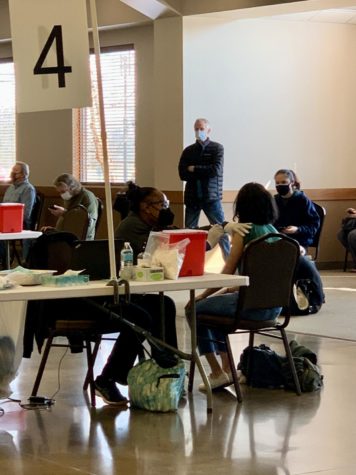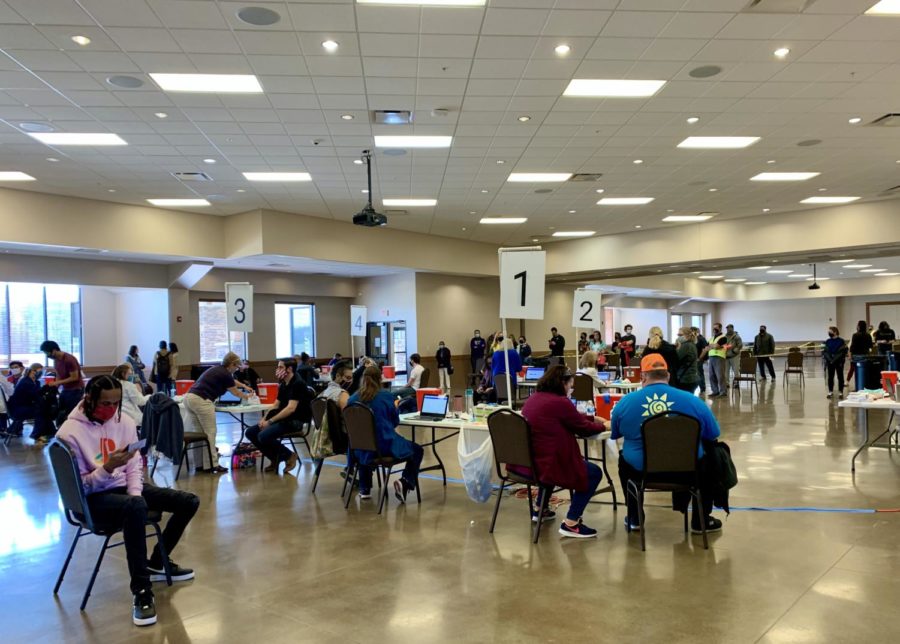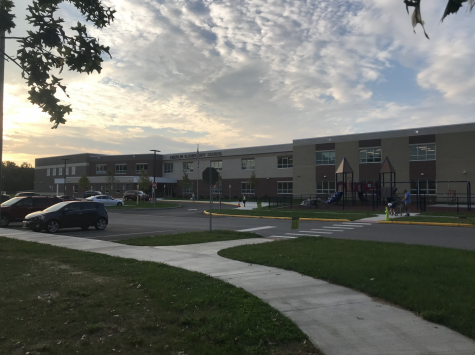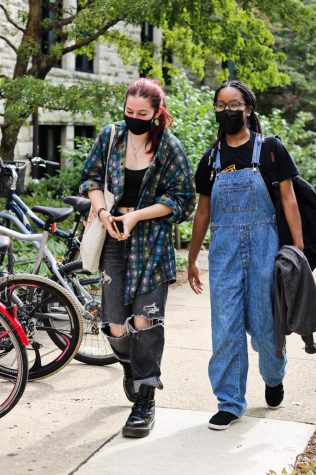College Loosens ObieSafe Measures as Vaccines Become Available
Earlier today the College announced that it will open a vaccination clinic for students at Hales Gymnasium late next week. After almost two semesters of implementing a strict layered health strategy to combat COVID-19, the College also outlined revised ObieSafe regulations for the remainder of the spring and summer semesters in a March 25 ObieSafe Weekly email. Changes include resuming athletic competitions, discontinuing COVID-19 testing for fully-vaccinated individuals, reopening The Hotel at Oberlin, and changing quarantine and isolation protocols.
The ObieSafe revisions come after a semester with very few cases — only one person has tested positive on campus in the past six weeks. The College also said the changes are based on the expectation that 80 percent of students, faculty, and staff will be fully vaccinated by July 1 as well as weeks of declining caseloads, although this week COVID-19 cases are on the rise again in Ohio and Lorain County.
In the email, the College announced that individuals who upload documentation showing that they are two weeks post-vaccination will no longer be required to participate in monthly testing. Fully vaccinated individuals will also not be required to quarantine after approved travel or after close contact with a COVID-positive person unless the vaccinated person presents symptoms.
According to COVID-19 Campus Health Coordinator Katie Gravens, the College made this decision on the basis of guidance from Lorain County Public Health and the Centers for Disease Control and Prevention.
“The health department recommended that we discontinue monthly testing for vaccinated individuals based on CDC guidelines that were updated on March 23, 2021,” Gravens wrote in an email to the Review. “The CDC noted that vaccinated people exposed to a person who tests positive for COVID-19 do not need to quarantine or test. The College requires vaccinated individuals to wear a mask and socially distance, which is effective in preventing the spread of the virus.”
Next week the state of Ohio will send the College Johnson & Johnson vaccines to administer to students. All Ohioans ages 16 and over became eligible to receive the vaccine on March 29. According to Executive Assistant to the Vice President and Dean of Students Debra Herzog, as of March 31, nine students and 54 faculty and staff members have uploaded fully completed vaccination cards. Between March 18 and March 29, 325 students had requested to travel off-campus to be vaccinated.

The College also announced it will no longer use The Hotel at Oberlin to isolate students who are symptomatic or test positive for COVID-19. Starting April 5, students with COVID-19 will isolate in Fairchild House for the remainder of the spring semester and in Keep Cottage in summer 2021. Fairchild currently houses students who have not tested positive for COVID-19 but who have been in close contact with a COVID-positive person or who have traveled recently. Beginning April 5, these students, as well as those who are symptomatic but have a negative antigen test, will quarantine in their normal residence.
The possibility of living in the same residence as someone in quarantine makes some students uncomfortable.
“I trust that the school has done their research and talked to the right people and know that this is safe,” said College third-year Clara Zucker. “But if someone in my dorm was a close contact I would probably be nervous.”
The Hotel at Oberlin will go back to public use in the next few weeks. According to Gravens, the College’s decision to transfer isolation from the hotel to Fairchild House was prompted by the low number of positive COVID-19 cases on campus in both the fall and spring semesters. She stated that the decision was not related to the College’s recent announcement that graduating seniors will have an in-person commencement ceremony with limited guest attendance.
“The hotel was also used to isolate symptomatic students who we thought could have COVID,” Gravens wrote. “We have found that rapid tests are very accurate, with high correlation to PCR test results. When a student has a positive rapid test, they will still be isolated pending the PCR results. We feel comfortable quarantining students with a negative rapid test result in their residence while awaiting PCR confirmation. Commencement did not weigh in on the decision. The health department agreed that the policy change was reasonable and would not present a threat to the campus.”
Arman Luczkow, College third-year and Co-chair of the Student Senate Disability Equity and Mental Health working group, is optimistic that the College’s proposed steps toward reopening campus will be beneficial for students’ mental health.
“Especially for the third- and second-years who are going to be on campus in the summer and who have had to be at home for extended periods of time, the toll of quarantine is pretty difficult,” Luczkow said. “And if you’re on campus, there are a lot of regulations you have to follow, and that can be a bit stifling — not that it’s [unnecessary], but it’s not easy for students to have to sacrifice much of what makes college, college, for so long. So any return to a semblance of normal, no matter how minimal, is very welcomed at this point.”
Still, Luczkow does not believe the College revised ObieSafe policies with students’ mental health as a priority.
“I think it’s going to be great for mental health, but it wasn’t done with the consideration of mental health in mind,” Luczkow said, “I think the consideration was: one, safety — can we be safe and keep coronavirus cases down and also reduce regulations? Two, how long can we sustain these regulations, academically [and] financially?”
Other recent changes to ObieSafe regulations include allowing limited athletic events with additional safety precautions and permitting the conservatory to host outdoor music events and performances. The College is also hosting two in-person commencement ceremonies. Each ceremony will accommodate 300 graduating seniors, with each senior allotted two guest tickets. The ceremony will also be livestreamed.
“The state changed capacity guidelines in late February, indicating that 30% capacity was acceptable in outdoor venues if there was adequate space for six feet of social distance,” Gravens wrote. “Governor DeWine made this decision based on declining rates of COVID-19 infections in the state. Oberlin has had very low rates of infection since the semester began, with a current positivity rate of 0.15%, as of 3/29/21.”
While the College’s cases have been negligible for the past month, the case count in Lorain County and the state at large are beginning to spike again. Lorain County counted 616 COVID-19 cases in the past two weeks, up from 443 cases between March 4 and March 18.
Ohio’s seven-day average of new cases per day rose to 1,842 this week, up from 1,570 cases last week. The state saw almost 2,500 new cases on March 30 alone. More contagious variants of COVID-19 are also on the rise, with the state variant count climbing from 92 cases on March 12 to 620 cases on April 1.
Information on vaccination and vaccine card uploading can be found on the ObieSafe Vaccine Updates webpage. As of publication, the College expects to begin administering vaccines late next week, and is asking students to fill out a survey to indicate if they are interested in receiving a vaccine from Oberlin. Faculty and staff may sign up for a waitlist to receive leftover doses.








